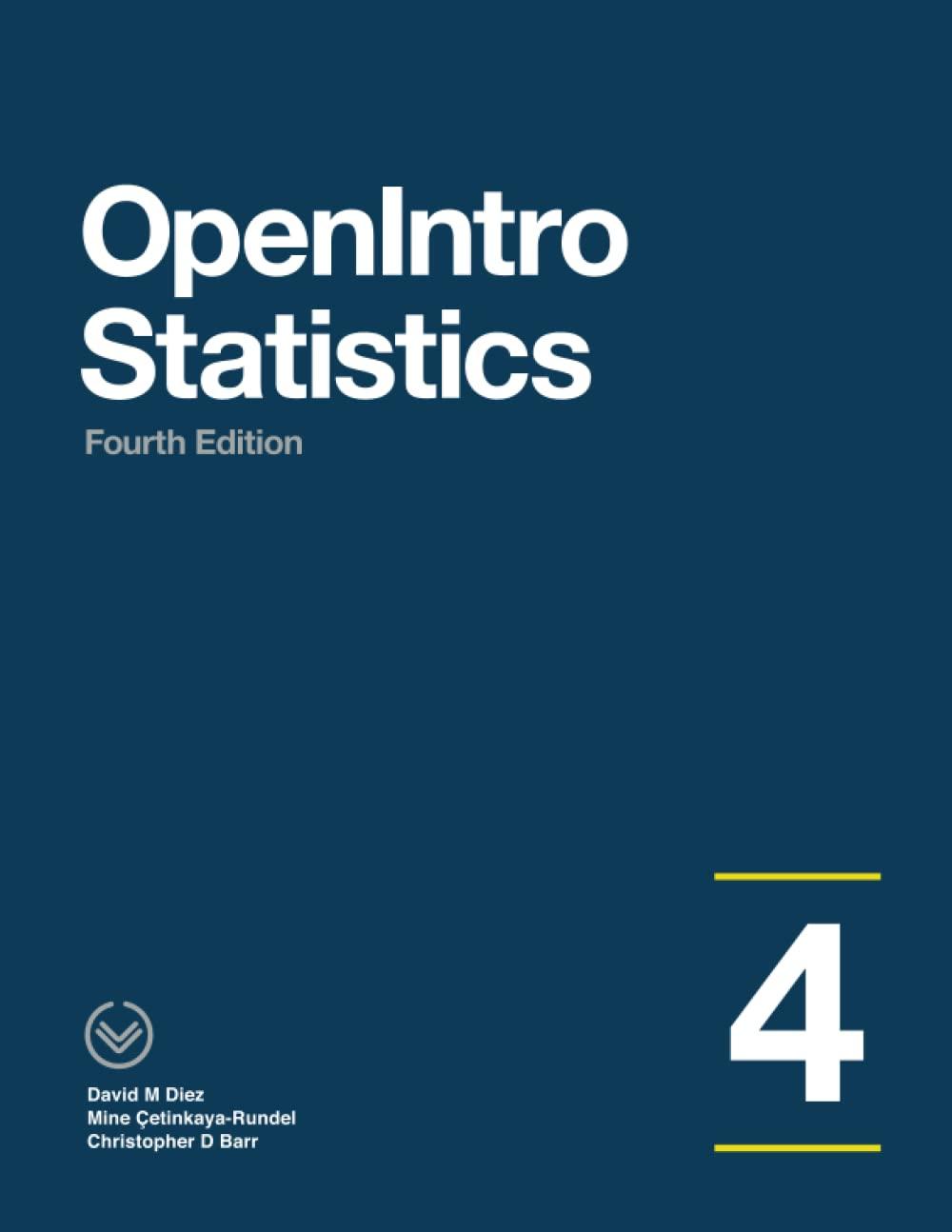In a public health study on the e ects of consumption of fruits and vegetables on psychological
Question:
In a public health study on the e ects of consumption of fruits and vegetables on psychological well-being in young adults, participants were randomly assigned to three groups: (1) diet- as-usual, (2) an ecological momentary intervention involving text message reminders to increase their fruits and vegetable consumption plus a voucher to purchase them, or (3) a fruit and vegetable intervention in which participants were given two additional daily servings of fresh fruits and vegetables to consume on top of their normal diet. Participants were asked to take a nightly survey on their smartphones. Participants were student volunteers at the University of Otago, New Zealand. At the end of the 14-day study, only participants in the third group showed improvements to their psychological well-being across the 14-days relative to the other groups.
(a) What type of study is this?
(b) Identify the explanatory and response variables.
(c) Comment on whether the results of the study can be generalized to the population.
(d) Comment on whether the results of the study can be used to establish causal relationships.
(e) A newspaper article reporting on the study states, "The results of this study provide proof that giving young adults fresh fruits and vegetables to eat can have psychological benefits, even over a brief period of time." How would you suggest revising this statement so that it can be supported by the study?
Step by Step Answer:

OpenIntro Statistics
ISBN: 9781943450077
4th Edition
Authors: David Diez, Mine Çetinkaya-Rundel, Christopher Barr





